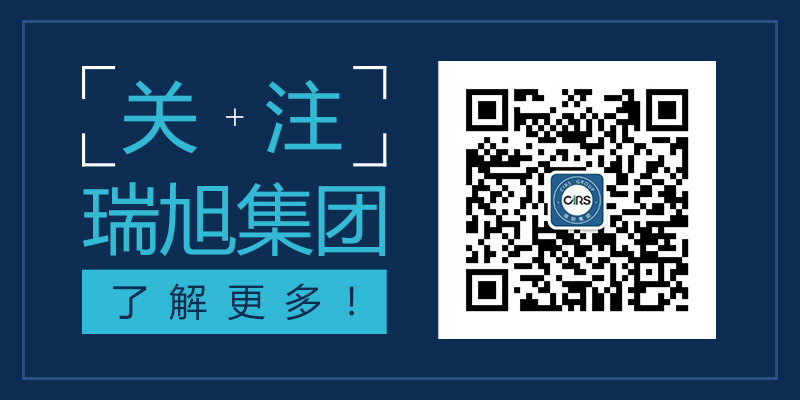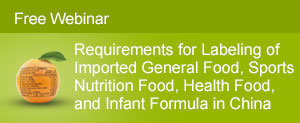28th
September 2015, the General Administration of Quality Supervision, Inspection and Quarantine of the People’s Republic of China (AQSIQ) released a notice for public comments on the
Administration Measures for the Port Inspection and Supervision of Imported Food
(exposure draft). It will replace the
Implementation Regulation on the Poor Record Management of Imported Food
which was published by AQSIQ on 26th
February 2014 (Notice No. 43 of 2014).
The port inspection and supervision is closely related to the production and trading enterprises of imported food. The new regulation puts forward stricter requirements for imported food, overseas manufacturers, exporters and importers, however, convenient customer clearance procedure and relaxed supervision condition will be provided to enterprises with high reputation. As it is only a draft which has no legal effect currently, related enterprises should keep focus on the following progresses.
Purpose
To standardize food importation activities, strengthen the port inspection and supervision management of imported food and guarantee the imported food safety.
Application Scope
The application, acceptance, examination, inspection and supervision of imported food should comply with the requirements of this regulation.
However, the port inspection and supervision management of imported food additives, food related products, fresh melons, wheat, barley, rye, maize (contain maize flour), soybean, potato (contain potato crisps, potato chips, potato starch), rapeseed, dry cassava slices (contain cassava starch) and edible live animals are not involved in this regulation.
Who should be responsible for the port inspection and supervision?
The AQSIQ is responsible for the supervision and guidance of the nationwide port inspection, supervision and management of imported food.
Local CIQs are responsible for the port inspection, supervision and management of imported food in their jurisdictions.
Responsibility of imported food production and trading enterprises
The food production and trading enterprises should guarantee that the imported food comply with requirements of related laws, regulations and standards in China. And the overseas exporter or their agents should be recorded under AQSIQ with real information.
Requirements of special foods
The product formula of imported infant formula milk powder should pass the registration under CIQ. The imported health food and food for special medical purpose should be registered or recorded under China Food and Drug Administration (CFDA).
Requirements of label
The label and specification of imported prepackaged food should comply with the requirements of corresponding laws, regulations and food safety national standards in China. The importer, overseas exporter and manufacturer should be responsible for the contents in label and specification. Importer should review to make sure the label is compliant.
Procedure of port inspection
| S.N. | Procedure | Detailed information |
| Step 1 | Pre-declaration | Importer or its agent should declare to local CIQs in 5 days before food arrive the port with required documents. |
| Step 2 | Documents examination |
Local CIQ should check below documents provided by importer: 1. The country of origin (region) and its product category should be approved if required. 2. Registration or record evidential materials should be provided if needed. 3. Check if the required qualification certificates are compliant, including enterprises self-qualified statement, testing report from qualified lab and etc. 4. Check if other documents are compliant. 5. The import and sale record of last batch of imported food should be provided except the first import. |
| Step 3 | On-site inspection |
Local CIQ should exam the imported food on the port or storage site with below aspects. If the inspection is unqualified, the importation will be rejected, however, if recertification is allowed, importation will be approved after examination. 1. Check if the sanitation of conveyance and storage place is compliant. 2. Check if the goods and certificates are consistent. 3. Check if the package is broken. 4. Check if the label and identification are compliant. 5. Check if the product contains substance which is forbidden. 6. Check if the product is decayed. 7. Check if the product is polluted with foreign matter. |
Supervision category
The CIQ supervision measures including conventional supervision, strengthened supervision, supervision by detain, importation suspended and etc.
| Category 1. Conventional supervision |
| Generally, CIQ will conduct the document examination and on-site inspection of imported food batch by batch, and the sampling inspection on the basis of the national imported food safety supervision sampling inspection planning will be executed. |
| Category 2. Strengthened supervision |
|
If the safety and sanitation items are unqualified or if there is any potential safety risk are found in the imported food conventional supervision, alert notification will be released by AQSIQ based on the risk assessment and the supervision of products from the same manufacturer or country will be enhanced with sampling inspection of related unqualified items for more than 30% of a batch. If there are 60 batches of this imported food are continuously qualified, the alert notification will be cancelled and the supervision will resume to conventional supervision. |
| Category 3. Supervision by detain |
|
If the safety and sanitation items of imported food under strengthened supervision are still unqualified or there is any significant potential safety risk, alert notification will be released by AQSIQ based on the risk assessment and the supervision of products from the same manufacturer or country will be detained in designated place until the testing report from qualified lab to prove its safety is provided to CIQ and the transfer is approved. If there are 300 batches of this imported food are continuously qualified, the alert notification will be cancelled and the supervision will resume to strengthened supervision. |
| Category 4.Importation suspended |
|
The importation will be suspended if the following situation happened. Only if the restructuring is conducted, the food safety could be guaranteed and the requirements of AQSIQ could be conformed, the supervision will resume to detainment supervision. 1. If there are more than 60 batches of food imported from one manufacturer in the last 12 months and the unqualified rate is more than 5%. 2. The imported food production and trading enterprises breaking related laws and regulations severely 3. There is any huge potential food safety risk to import the food from a manufacturer or country. |
In short, the supervision of imported food will be stricter and more systematic. Food with high unqualified rate will be strengthened supervised and high quality food will be less inspected by local CIQ. The loss of time and money is significant. Therefore, pre-testing is very necessary for imported food to guarantee its quality as the requirements in different countries are different.
Contact us
Ms. Alice Yang, Food & Health Products, CIRS China
11F Dongguan Building, 288 Qiuyi Road, Binjiang District, Hangzhou, China, 310020
Tel: +86 571 8720 6555 | Fax: +86 571 8720 6533
Email:Alice.Yang@hfoushi.com






